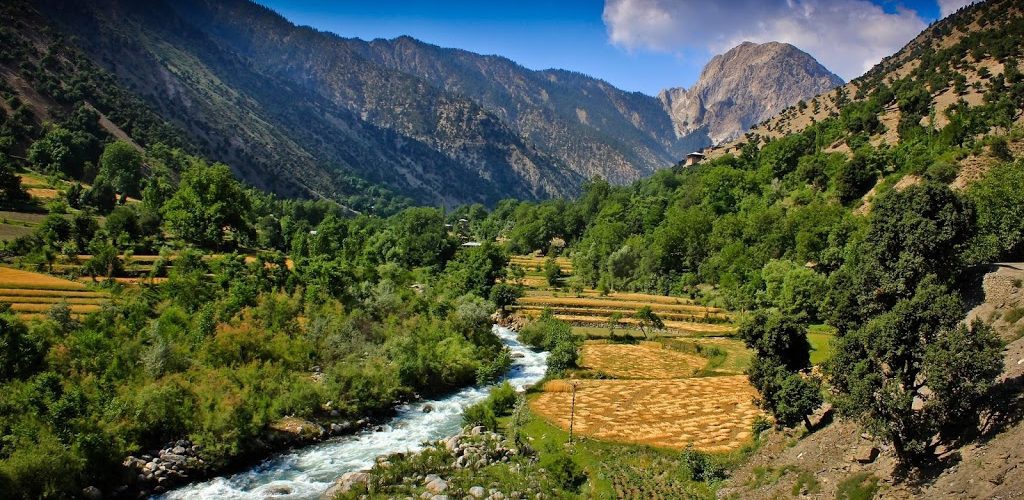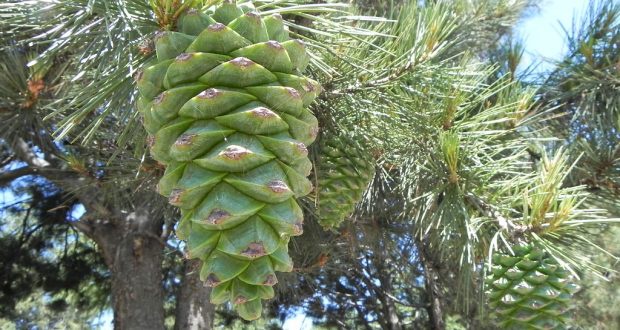,.,.,.,.,.
Bureau Report
April 9, 2022
PESHAWAR: The Khyber Pakhtunkhwa forestry, environment and wildlife department has prepared a strategy to reduce desertification and forest degradation at the cost of over Rs2.15 billion in the next 10 years.
Soon after coming to power in the province 2013, the Pakistan Tehreek-i-Insaf (PTI) had launched the Billion Trees Tsunami Afforestation Programme in the province.
The initiative was later extended to other parts of the country as the Ten Billion Trees Tsunami Afforestation programme after the party formed government in the centre in 2018.
The strategy, whose draft is available with
Dawn and is called the Reducing Emission from Desertification and forest Degradation (REDD+) Action Plan, is part of the Pakistan National REDD+ Strategy, which was approved in 2021.
Govt’s Rs2.15bn initiative to involve multi-stakeholder participatory approach
The KP Provincial REDD+ Action Plan (Prap) has been developed to contribute to the strategy’s objectives and sustainable management of forest resources.
According to the Prap, starting in the early 2000s, KP has been a pioneer in introducing participatory forest management and successfully formalising the approach in its legal frameworks, and because of this history, KP naturally takes a community-based approach to REDD+.
“KP’s REDD+ Action Plan is founded on this history of community-based approaches to resource management.”
The document said the preparation of KP Prap took a multi-stakeholder participatory approach.
“The overarching purpose of the Prap is to increase benefits from sustainably managed and enhanced forest resources for the people contributing to their livelihood and at the same time mitigating climate change,” it said.
On the other documents has outlined specific objectives including outlining actions in line with ground realities to address the prioritised drivers and barriers with the context of specific actions and related budget, improving health of the forest ecosystems by reducing deforestation and forest degradation and enhancements of biomass and defining effective implementation and monitoring of REDD+ actions to address the drivers.
Also, the strategy will focus on identifying social and environmental risks associated with proposed actions and suggest risk mitigation.
The document identified the clearing of forestland for agriculture, and housing colonies and settlement as the main drivers of deforestation. Also, high demand for energy, construction timber and grazing and illegal timber extraction for selling for construction and firewood and improperly managed tourism activities have been identified as drivers of forest degradation in the province.
“These drivers were analysed by the stakeholders and several underlying causes were identified,” it said.
The document said the Prap proposed several actions to address underlying causes of deforestation and degradation and one of them was achieving the efficiency and alternative sources of energy to address the main cause of degradation, which was firewood extraction for energy.
Also, mapping resources and effective implementation of regulation to curb conversion of land to other land uses are other priority areas identified in the Prap.
According to the documents, the strategy, to address the issue of deforestation, has suggested to improve forest resources include improving enabling policy environment for REDD+ implementation which include participatory monitoring system, benefit sharing mechanism, forest law enforcement and implementation strengthened, capacity building of actors on forest monitoring system besides introducing alternative incomes and livelihood opportunities, promoting sustainable forest-based enterprises and vocational education, and forest-based payments from forest ecosystem services.
It also proposed a set of interlinked activities that form coherent actions for counteracting a driver of deforestation, forest degradation and/ or barriers to expansion of a forest carbon enhancement activity.
“One of the key actions identified in the Prap is continuation and refining participatory approach to forest management in which the province has already travelled a long way,” the draft strategy said. Also, integration of trees on private lands (as in case of BTAP) has been emphasised to promote sustainable solutions to energy demands on forests.
The document also said the Prap would make traction through participatory forest management plans with an approach that encouraged harvesting trees on a rotational basis so that timber and fuel might be produced and used sustainably for local use.
The Prap suggested activities to enhance forest stocks to ensure that forests continue to see improvement for effective REDD+ results.
Published in Dawn, April 9th, 2022
,.,.,.,.






